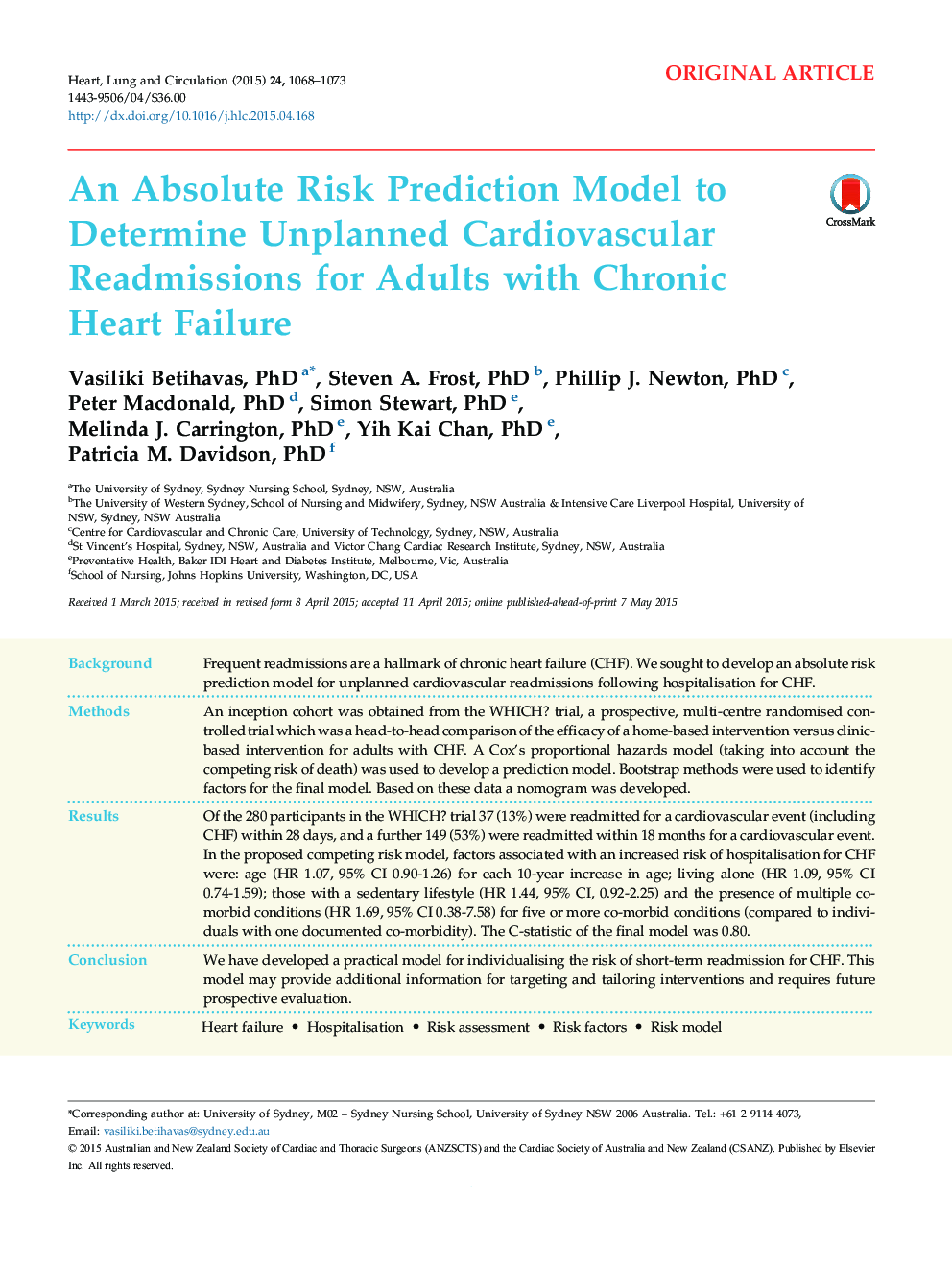| Article ID | Journal | Published Year | Pages | File Type |
|---|---|---|---|---|
| 2917380 | Heart, Lung and Circulation | 2015 | 6 Pages |
BackgroundFrequent readmissions are a hallmark of chronic heart failure (CHF). We sought to develop an absolute risk prediction model for unplanned cardiovascular readmissions following hospitalisation for CHF.MethodsAn inception cohort was obtained from the WHICH? trial, a prospective, multi-centre randomised controlled trial which was a head-to-head comparison of the efficacy of a home-based intervention versus clinic-based intervention for adults with CHF. A Cox's proportional hazards model (taking into account the competing risk of death) was used to develop a prediction model. Bootstrap methods were used to identify factors for the final model. Based on these data a nomogram was developed.ResultsOf the 280 participants in the WHICH? trial 37 (13%) were readmitted for a cardiovascular event (including CHF) within 28 days, and a further 149 (53%) were readmitted within 18 months for a cardiovascular event. In the proposed competing risk model, factors associated with an increased risk of hospitalisation for CHF were: age (HR 1.07, 95% CI 0.90-1.26) for each 10-year increase in age; living alone (HR 1.09, 95% CI 0.74-1.59); those with a sedentary lifestyle (HR 1.44, 95% CI, 0.92-2.25) and the presence of multiple co-morbid conditions (HR 1.69, 95% CI 0.38-7.58) for five or more co-morbid conditions (compared to individuals with one documented co-morbidity). The C-statistic of the final model was 0.80.ConclusionWe have developed a practical model for individualising the risk of short-term readmission for CHF. This model may provide additional information for targeting and tailoring interventions and requires future prospective evaluation.
